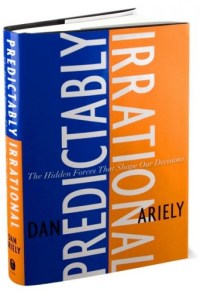A group of Kentucky men would prefer to spend time in jail time rather comply with vehicle safety rules.
As you can see from their booking photos, the men are Amish and belong to the Old Order Swartzentruber Amish group. They say their religious beliefs forbid the placement of bright orange safety triangles on the backs of their buggies. They believe that displays of “loud” colors should be avoided, along with the use of “worldly symbols.” Swartzentruber Amish believe such symbols indicate the user no longer trusts fully in God.
The orange triangles are required on all slow-moving vehicles, according to Kentucky state law. The Swartzentruber Amish use along with lanterns and red reflector lights, but refuse to use the orange triangle.
Is this a case of a bad rule, over-zealous enforcement, or criminal behavior? The compliance aspect of the situation caught my attention. The ethical, religious, and legal aspects of the situation are numerous.
The goal is to make sure that all vehicles on public roads are visible, especially slow-moving vehicles. That seems to be a reasonable goal.
This is not the first time the Amish community has clashed over this issue. In 2003, the Swartzentruber families in Nicktown Ohio successfully appealed after they refused to put orange reflective triangles on their horse-drawn buggies. They were allowed to mount less gaudy gray tape. Other states already accommodate the religious beliefs of conservative Amish groups by allowing the use of reflective tape instead of triangles.
I fall on the side of the Amish on this one. Suppose the rule was not for a triangle, but a six-pointed star. SOme would argue that it is merely an icon. Others will argue that it has obvious religious implications. The triangle symbol does not mean much to me, but it does to this Amish sect.
They don’t like bright colors. That seems to conflict with the need for visibility. One of the failings in the orange triangle rule is that the regulators had no studies to show that the orange triangle decreased the rate of collisions more than gray reflective tape the Amish were willing to use.
From a compliance perspective, it’s always better to have a clear, simple rule. When the situation gets complicated by deeply held beliefs that conflict with the rule, it’s time to revise the rule or allow deviations from the strict rule.
Sources:
- Amish men jailed over refusal to use orange safety triangle on buggies By Kim Hutcherson in CNN’s Belief Blog
- Meet The Eight Amish Guys Jailed For Refusing To Attach Orange Safety Triangles To Their Buggies in the Smoking Gun
- 8 Amish men jailed for not putting orange safety triangles on their buggies in 22 Words
- Mugshots of Amish who won’t put orange triangles on their buggies by Mark Frauenfelder in Boing Boing
- Religious Freedom vs. Sanitation Rules by Sean D. Hamill in the New York Times
- Pennsylvania Superior Court Rules: Amish Can Stick With Reflective Tape on Buggies
- The Pennsylvania Superior Court Decision in Pennsylvania v. Swartzentruber












